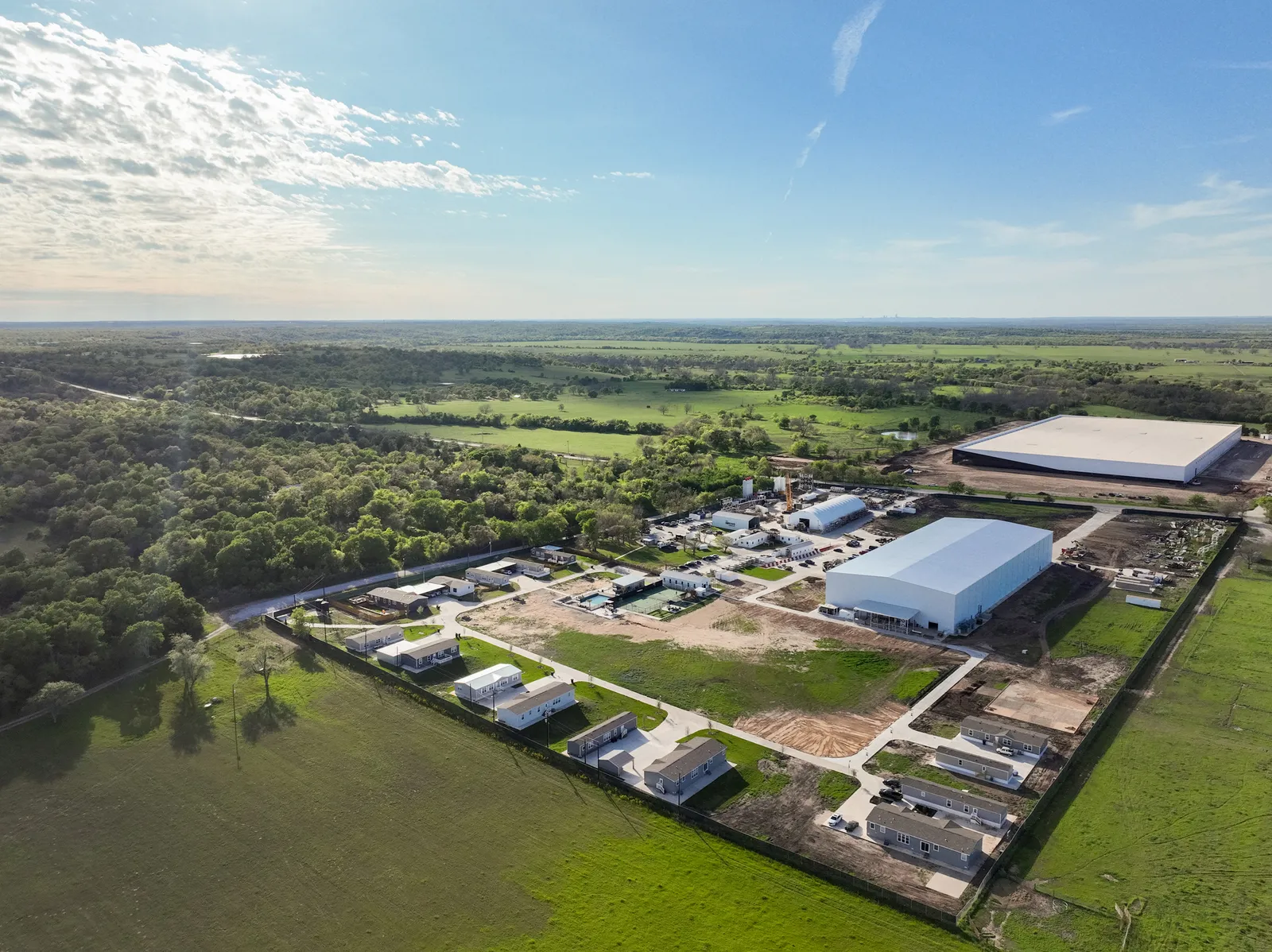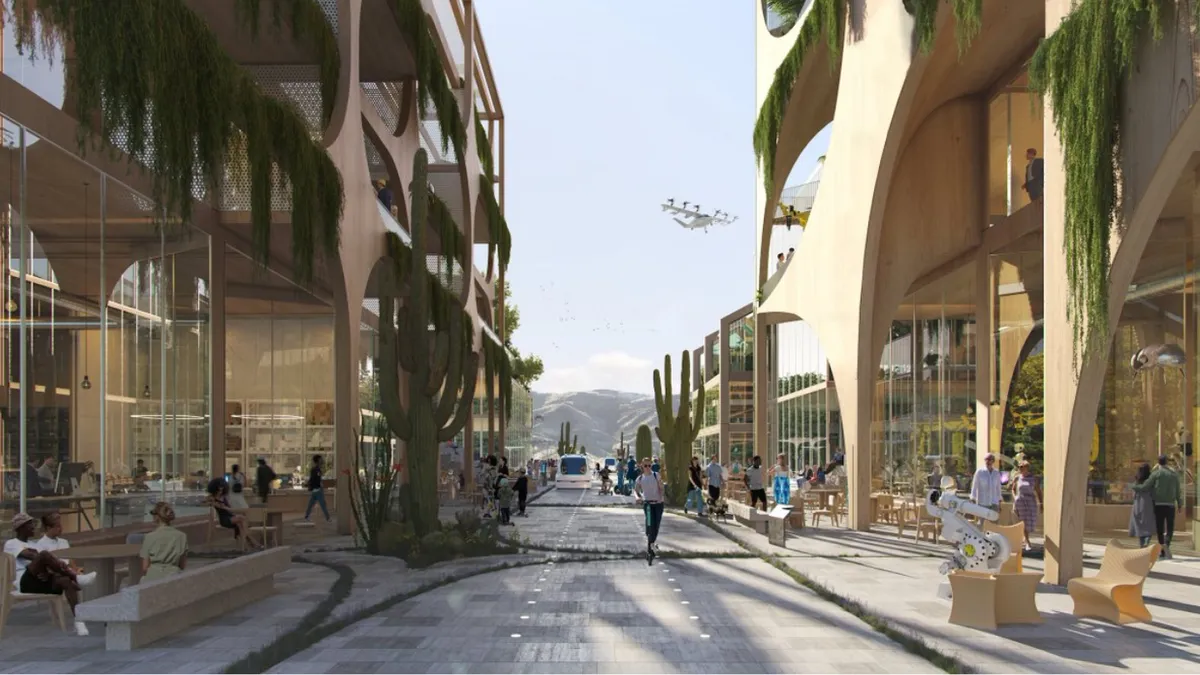It began with portable toilets.
Chap Ambrose, a 10-year resident of Bastrop County, Texas, said his wife saw the toilets moved to a property near their home in 2021. That’s how the couple found out that Elon Musk is planning to build a “utopia” company town in Bastrop, just outside of Austin, Texas.
Ambrose now runs Keep Bastrop Boring, a coalition of Bastrop residents that closely tracks progress of Musk’s planned city. And there’s been a lot of progress — in terms of government violations.
Musk’s The Boring Co., which operates on land adjacent to Ambrose’s property, has been cited for repeated problems by the state of Texas and Bastrop County. Four water quality-related violations from the Texas Commission on Environmental Quality have been referred for enforcement action. The Texas Department of Transportation warned the company in 2022 that traffic from its unpermitted driveway was blocking the local highway, according to Observer. In 2022, Bastrop County issued a notice for the company’s installation of an unauthorized septic system.
Ambrose’s goal is to work with the Boring Co. to ensure the company abides by the law. “Seeing the daily realities of how they operate and the way they treat their property and the way they treat the environment and their employees, it's disappointing,” he said.
Over the past few years, several billionaires have announced plans to build their own smart cities. There’s even a venture capital firm funding the creation of cities around the world. But so far, most of these plans have seen little tangible progress. Some, like Musk’s planned city of Snailbrook, have run afoul of residents and regulators.

A city is more than land and an idea
Throughout history, there have been cycles of the richest individuals building their own cities. One major surge came after the Industrial Revolution, when people had concerns about the cleanliness and income levels in large cities, said Jill Grant, professor emeritus of planning at Dalhousie University in Nova Scotia, Canada.
The concerns of the Victorian era bear a resemblance to those of U.S. conservatives today, she said. So in an era of billionaires and lack of affordable housing, it’s no surprise that those in the wealthiest sliver of society have turned to building their own cities, Grant said.
She isn’t sure that billionaires have the know-how to be successful, however. “They have lots of land and they have an idea, but making it into a city takes a lot of work,” Grant said.
So far, Musk has two warehouse buildings in Bastrop and about a dozen manufactured homes for employees and their families, Ambrose said. But it’s difficult to find out much information, even for county residents.
“Everyone's got [a nondisclosure agreement]. Anybody who knows anything won't go on the record. There are very few public documents,” he said. His message to the company: “You're a neighbor here, whether you like it or not, just by proximity. So you can't be angry when you're forced to engage in any public processes.”
Other billionaire-proposed cities also have yet to be realized. Six years ago, news reports said Bill Gates was planning to build a smart city in Arizona, after an investment firm with ties to the Microsoft co-founder bought 24,000 acres of land in the desert. No new information about the rumored community has surfaced since those first reports.
Another aspiring “utopian” city, Telosa, has an eventual population goal of 5 million. Diapers.com and Jet.com founder Marc Lore announced plans in 2021 for what he envisions as a futuristic and sustainable metropolis in the U.S. desert.
“We continue our efforts to develop partnerships and collaborations, find a location, add advisors and thought leaders in key areas of focus and are working with our community to understand what is most important to them,” said Jon Mallon, who is leading the Telosa project, in an email to Smart Cities Dive. He declined to announce a timeline for site selection.
Meanwhile, in California, a group of tech billionaires has spent the past five years buying 55,000 acres around Solano County, northeast of San Francisco, with plans to build a metropolis called California Forever. The group includes former Goldman Sachs trader Jan Sramek, LinkedIn co-founder Reid Hoffman, venture capitalist Marc Andreessen and Laurene Powell Jobs, widow of late Apple founder Steve Jobs.

The mayor of Fairfield, California, told the Daily Beast that 95% of the hundreds of messages she has received about California Forever are opposed to it. But after publicly opposing the plan initially, Mayor Catherine Moy has reconsidered the idea. She recently proposed an equal partnership between the city of Fairfield and Flannery Associates, the group of investors.
“They could truly do a lot to help Solano County if they cared, really, about what's going on here,” Moy told ABC10. “We have a whole city block down. They're welcome to come and develop [it] for a little project to show us what you can do.”
She remains skeptical, however, especially regarding water resources and the lack of transparency about the investors. “We're not a plaything,” Moy said.
Water is a chief concern for these cities since many are planned for the U.S. West, which faces water shortages that are only projected to worsen due to climate change. At least one planned city has been derailed due to water. Blockchains Inc. wanted to build a smart city in Nevada, but the state denied the cryptocurrency company the water rights to do so in August.
The future of billionaire-planned cities
Another reason so many cities are being proposed is the political climate, said Shannon Mattern, author of the book “A City Is Not a Computer.” Many corporations, especially those in Silicon Valley, say public institutions no longer work and they could create a better city if they run it like a business or technology, she said.
“We can use technologies in really productive, ethical ways to make cities more responsive, more efficient, to make urban systems run equitably and reliably,” said Mattern, professor of media studies at the University of Pennsylvania. “But to assume that everything is potentially technologizable, or that we can produce data feeds that allow us to track everything, that's really reductive and false.”
Grant said that the billionaires behind these projects could instead support public, nonprofit and cooperative housing in the many North American cities where existing residents struggle to afford homes.
Ambrose doesn’t think Musk’s city in Texas will happen. If it does get incorporated, the proposed city’s leaders would need bylaws and public meetings, something that he said the Boring Co. has so far been reticent to do.
“They can’t even install a [legal] septic system,” Ambrose said. “So I don’t have a lot of faith.”










